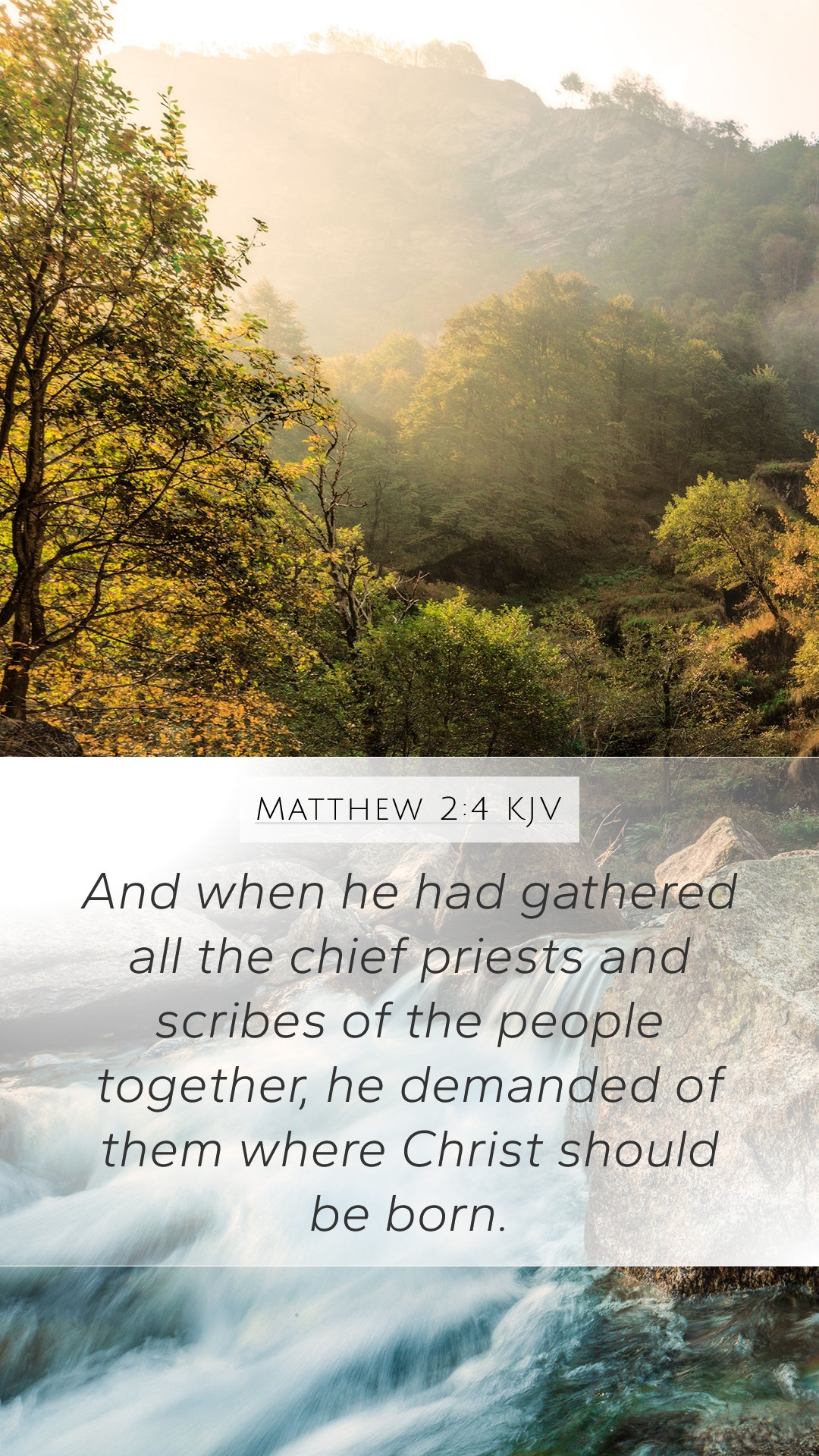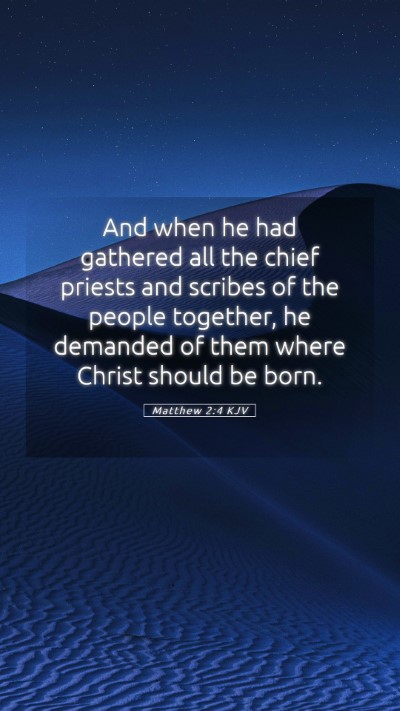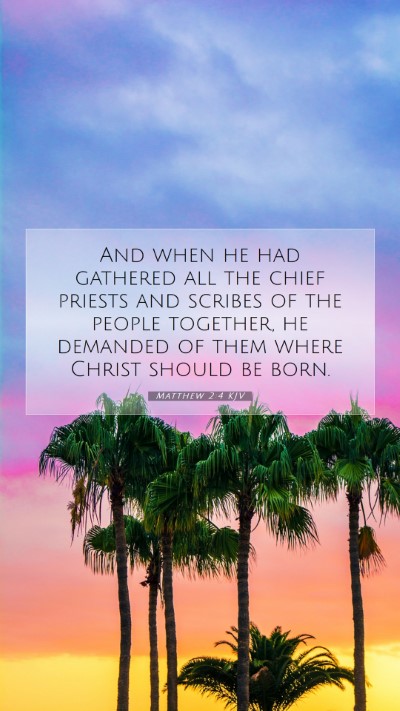Understanding Matthew 2:4
Matthew 2:4 reads: "And when he had gathered all the chief priests and scribes of the people together, he demanded of them where Christ should be born." This verse presents a significant moment during King Herod's inquiry about the birthplace of Jesus, demonstrating the intersection of royal authority, prophecy, and the foreshadowing of Christ's impact.
Contexts and Themes
The Bible verse interpretation in Matthew 2:4 not only highlights the political and religious climate of the time but also sets up the fulfillment of Old Testament prophecies concerning the Messiah's birth. Herod's actions illustrate the tension between earthly power and divine purpose.
- Historical Context: Herod, a king known for his cruelty and paranoia, fears the prophecy of a new king, which propels him to seek counsel from the religious authorities.
- Prophetic Fulfillment: This inquiry connects explicitly to Micah 5:2, which foretells the Messiah's birthplace in Bethlehem.
- Religious Leadership: The involvement of the chief priests and scribes showcases their knowledge of the Scriptures and their significance in guiding the Jewish populace.
Insights from Commentaries
Matthew Henry's Commentary
Matthew Henry emphasizes that Herod's gathering of the chief priests and scribes demonstrates both his wisdom in seeking information and his underlying wickedness in wanting to eliminate the newborn king. Here, we see how the president of darkness seeks to thwart the light of the world.
Albert Barnes' Notes
Albert Barnes points out that the question of where Christ should be born reveals the religious expectations of that era. The precise knowledge of the prophecy among the Jewish leaders reflects the importance they placed on Scripture, yet their lack of action in response to the Messiah's arrival is a profound statement about spiritual blindness.
Adam Clarke's Commentary
Adam Clarke explains that Herod was deeply troubled by the prophecy and took extreme measures to secure his throne. Clarke also brings forth the idea that Herod’s demands foreshadow his later actions to destroy any threat to his power, which leads to the tragic event of the slaughter of the innocents.
Key Takeaways on Bible Verse Meaning
In summary, Matthew 2:4 is a pivotal verse that encapsulates the tension between earthly authority and divine will. Herod's inquiry is laced with fear and ambition, contrasting with the humble nature of Christ's birth, underscoring the broader theme of prophetic fulfillment and spiritual reception.
Related Scripture Cross References
- Micah 5:2 - Prophecy of Christ's birthplace.
- Isaiah 9:6 - Prophetic declaration of the coming Messiah.
- Luke 2:4-7 - The narrative of Jesus’ birth in Bethlehem.
Application in Bible Study
This verse serves as an excellent topic for Bible study groups or online Bible study courses focusing on the themes of prophecy, leadership, and the nature of Christ. Understanding this passage can enhance Bible study insights on how to interpret complex Bible verses concerning the arrival of Christ and the prophetic significance behind it.
Conclusion
In our Bible study lessons, the exploration of verses like Matthew 2:4 enriches our comprehension of Scripture. It calls us to reflect on how we might respond to prophecies and revelations in our own lives. The search for the meaning of Bible verses like this one extends beyond mere analysis—it's a call to deepen our faith and understanding of God's plan throughout history.


